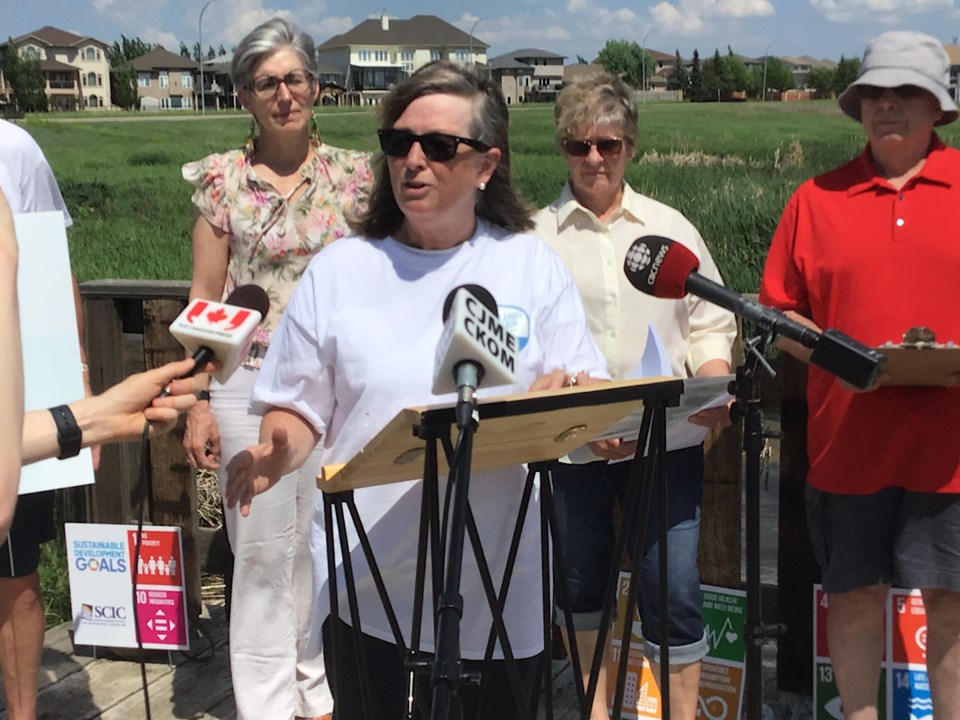REGINA - Environmental advocates were raising alarm bells over the province’s wetlands policy — or what they call the lack of it — in Saskatchewan on Monday.
The Saskatchewan Alliance for Water Sustainability, along with Calling Lakes Ecomuseum and the Last Mountain Lake Stewardship Group, held a news conference at the 171-acre McKell Wascana Conservation Park. There, they called on the province to come up with a wetland policy similar to Alberta and Manitoba.
The environmental groups pointed out that instead of developing a wetlands policy, Saskatchewan’s Water Security Agency had developed a Wetland Drainage Policy, now known as Agricultural Water Stewardship Policy.
They made it known this current setup is not strong enough. They expressed concerns there is no mention of requirements to restore drained wetlands, no explicit plan to improve water quality, and potential negative environmental impacts with more wetlands being destroyed.
“Through rigorous Saskatchewan research, we have learned that wetlands destruction causes downstream flooding, infrastructure damage, and degrades water quality increasing toxic blooms which we are seeing,” said Aura Lee MacPherson, Chair of the Calling Lakes Ecomuseum and of the Saskatchewan Alliance for Water Sustainability.
Geologist and rancher Clint Blyth, who ranches in southeast Moosomin, pointed to the issues being seen in his area.
“When we first got there, things were productive and we thought we were the best place we could be,” said Blyth, who moved to the parkland from southern Alberta thinking the conditions would be an improvement.
“Then I started to notice that especially after 2011 when we have some significant surface water issues, how much work is being done to remove the water from our landscape.”
He pointed to issues created by draining water off land used for farming operations. “These guys are nuts. Do they realize what they’re doing to their land and what the impacts and ramifications are of that?”
Blyth said the changes in water flows causing “significant erosion.” He adds that in the creek bed where they live now, “on a lot of places, it’s twice as wide as it was in 2010.”
Using Environment Canada Stream flow gauges, if there was a small rainfall event upstream and it flowed downstream, “those gauges jump straight up immediately.” Every time that happens, said Blyth, those stream banks “get saturated and the water drops, they cave in.”
NDP Critic for Water Security Erika Ritchie was there to lend her party's support, and she pointed out Saskatchewan is “the last province in Canada to develop a potential wetlands policy. And I don’t know about you, but I’m tired of being last in the nation.”
She noted municipalities have called for a provincial strategy, and that the provincial auditor has identified the need as well.
“We’re not asking the government for a lot here. Just develop a wetland policy similar to those already in place in the neighbouring jurisdictions.”


